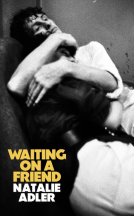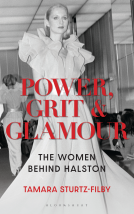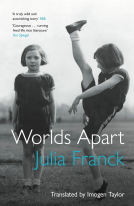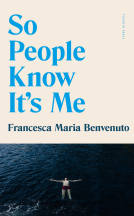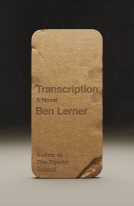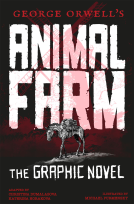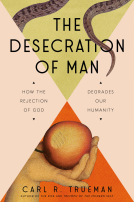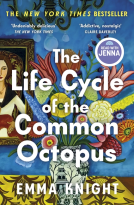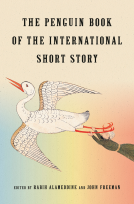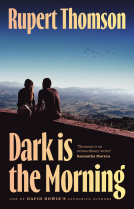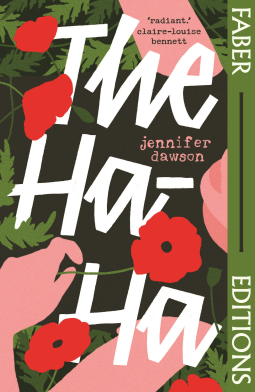
The Ha-Ha (Faber Editions)
by Jennifer Dawson; Daisy Johnson (intro)
This title was previously available on NetGalley and is now archived.
Send NetGalley books directly to your Kindle or Kindle app
1
To read on a Kindle or Kindle app, please add kindle@netgalley.com as an approved email address to receive files in your Amazon account. Click here for step-by-step instructions.
2
Also find your Kindle email address within your Amazon account, and enter it here.
Pub Date Jul 31 2025 | Archive Date Aug 12 2025
Talking about this book? Use #TheHaHa #NetGalley. More hashtag tips!
Description
'Why did you laugh?'
'I don't know. Just that it seemed so funny being alive at all.'
This lost classic coming-of-age tale is a tragicomic portrait of one young woman’s university breakdown and recovery, introduced by Daisy Johnson.
A tea party at an Oxford college. Earnest undergraduates in floral dresses clink cups, discussing essay-crises, punting, summer balls. But to one student, they are grotesquely transformed: she is sitting among ominous armadillos with scaly shells, buzzing with black flies. Then, the laughter comes. As she is engulfed by mirthless hysterics, the Principal has no choice but to send her away.
Josephine's entrance into the world of other people wasn't what she imagined. Since her mother's death, reality seems a badly painted canvas, viewed through the wrong end of a telescope; she always thinks the wrong things, cowed by the brightness of existence. It is a relief to belong, for once, within the mental institution where she is taken. But eventually, she must reintegrate with society — and through a transformative encounter with a fellow patient, a return to real life seems possible . . .
'Highly original and deeply relatable, The Ha-Ha is a radiant and powerful work that shines an unflinching light on the darker places.' Claire-Louise Bennett
'Some novels alight in the glimmering interstice between enthralling and necessary. This is one of them.' Claire Kilroy
'How can a novel so quiet and unsentimental be so moving? The sadness is right there, the beauty sneaks up on you. It took my breath away.' Meg Mason
'An unsettling read - poetic and sharp, a fascinating exploration of mental illness.' Catherine Cho
'Gleaming and courageous.' Emma Glass
'Such a brilliant book, and so timeless . . . A short, singular, elegant novel.' Guardian
'Cool, short, tender and occasionally as prettily ruthless as the impact of a stiletto heel.' Tatler
Available Editions
| EDITION | Paperback |
| ISBN | 9780571399260 |
| PRICE | £9.99 (GBP) |
| PAGES | 166 |
Available on NetGalley
Average rating from 29 members
Featured Reviews
 Quinty C, Reviewer
Quinty C, Reviewer
4⭐️ Something about books with women in mental hospitals just does it for me. What that says about me we’re just going to ignore…
Seeing that The Ha-Ha was compared to Sylvia Plath’s work instantly got me intrigued. The Bell Jar is one of my all time favorite books so I had high expectations going into this.
The Ha-Ha is about a young woman, Josephine, who’s currently in a mental hospital. We follow her as she tries to get back into “the real world”.
Josephine struggles with her purpose in life. She doesn’t want to be defined by her illness, by being “insane”. She wants to live, to experience joy.
Her journey to being “free” felt so realistic and understandable . Especially towards the end of the story I felt so connected to her and was rooting for her so much.
“Do you think I care whether the Doctors and hospital board decide I am sane or insane? I don’t care tuppence about nice quiet friends. Mine is not going to be that kind of existence. I want to live, to feel. I was born for something more than mere sanity. I was born for so much joy.”
The book was originally published in 1961 and the subjects that are being talked about within this book are so important, especially for that time.
I find Dawson’s prose at times chaotic and not as well developed/poetic as Plath’s. Which to me makes sense. Josephine to me is more a young woman whereas I see Esther as a more developed and wiser/older woman. The books are similar in storyline but different in writing style. The Ha-Ha focuses more on the experiences and The Bell Jar mostly reflects upon everything that has happened. That’s what reading it felt like to me at least.
I’m comparing both books because I both really enjoyed them and the similarities and differences are simply very interesting to me.
All in all, I just really enjoyed reading this book. It’s a short yet powerful read and one I highly recommend.
“‘I was born for something else. I was born for life, for joy, for . . .’ But it was not true. I stuck my teeth into the dusty, smooth bark of the tree. I ran my mouth up and down it searchingly, and cried and cried: ‘I am alive, aren’t I? Aren’t I, even if I don’t know the rules?’ I appealed, and cried more because there was no answer.”
Thank you, NetGalley and the publisher, for the arc
 louisa t, Reviewer
louisa t, Reviewer
Oh no, it's one of those books. The ones you enjoy, but can't for the life of you form a decent sentence to explain why.
Maybe it's the unusual voice of our main character.
Or the setting?
Or a look at mental health back in the day?
Whatever it was, I did enjoy it.
Thank you to Faber and Faber and NetGalley for the e-arc in exchange for an honest review.
The Ha-Ha follows Josephine, a 23 year old woman in the early 1960s, who has been diagnosed with schizophrenia and institutionalised. Very character-driven and hard to follow at times, as to be expected from the nature of the narrator.
An interesting modern classic being republished by Faber and Faber (available from 31st July 2025). For fans of ‘One Flew Over the Cuckoo’s Nest’, ‘The Bell Jar’, and ‘Girl, Interrupted’.
 Camille O, Librarian
Camille O, Librarian
I think The Ha-Ha by Jennifer Dawson is a novel that fans of Janet Frame and Sylvia Plath will enjoy being able to have the experience of discovering.
an incredibly poignant exploration of mental health treatment. The protagonist is committed a mental hospital away from her university after a mental breakdown when her mother dies. It gives this one woman a voice as we see her battle with her mental health and try to recover.
As I was reading this all I could think about was The Bell Jar by Plath (my favourite book ever) and if that doesn't convince you to read it then I don't know what will. How was this never on my radar before?!
It is a beautifully restrained yet deeply unsettling novel that offers an intimate look into the fragmented consciousness of a young woman, Josephine, grappling with mental illness. The writing is to the point and no nonsense. Josephine's narration draws us into her psychological disorientation.
I found the likeness to The Bell Jar comes from the alienation of women in this time whose minds don't conform to 'the norm'.
This is short but impactful.
First published in 1961 and winner of the James Tait Black Memorial Prize, this short novel is an interesting comparison to other books from the same era which are set in mental hospitals. The staff in this one are kind, though patronising, and are doing their best to provide treatment according to standards of the time. The author, Jennifer Dawson (1929 - 2000) had experience in mental hospitals as both a patient and a social worker.
The book is narrated by Josephine, a young woman who had a breakdown after struggling at Oxford University and the sudden death of her mother. After spending time on a locked ward, she has recovered somewhat and is allowed to leave during the day for a job cataloguing books. She is due to leave the hospital for good, but coping with the outside world is difficult because she doesn't fit into society and never knows what to say. The title of the book has two meanings: her tendency to laugh at the absurdity of everything and the wall behind the hospital where she and a male patient meet and eventually form a relationship.
Described as a 'lost classic', I think this book deserves to be more widely known. I found it a compelling read and there are some very unusual perspectives. I felt there were flashes of brilliances in the description which made the novel worth reading. Some of it didn't make much sense to me and I'm not sure if that was the intention, to reflect the characters' thinking. There are also references of an academic nature and to the era, which I didn't get. I was annoyed by the repetition of words, such as 'grimace' and 'grin' (and variations of these) which are used 11 times each! A new, named character was introduced just before the end of the story, something I always disapprove of. Yet these are small issues, compared to the book's overall achievement of questioning the role of women in society and what happens to those who don't conform.
This edition of the book has an introduction by Daisy Johnson and includes the author's afterword from 1984, which is very illuminating.
This is a powerful novel about a young woman with schizophrenia, being treated in a ghastly way in a mental health hospital (if you could even call it that.) Bleak, powerful, poignant but still full of hope and the yearning to live a full life - our protagonist, Josephine, tries to claw back 'normal life' by attending a party with former Oxford students and meeting a man who opens up her world, even if this is for a short time.
When he suddenly disappears, her world is tilted back into its original axis. She spends all her time shut away, back in the institution, where she is pumped full of drugs and fears she is growing fat as she never strays now from the hospital walls.
I can see this novel as being nothing short of ground breaking when it was published - in an era which had yet to make so much more progress in terms of understanding mental health and maintaining a society who could speak openly about it. Reading it today, although there is still so much stigma attached to schizophrenia in particular, it is still shocking, bleak and eye opening.
I loved the writing style and how the story is told in the first person - as it gives the reader no room to hide. The sense of hope and yearning for a different life, yet Josephine never being able to fully escape outside of the institution's four walls, is a haunting message that will stay with me for a long time.
"I want to live, to feel. I was born for something more than mere sanity. I was born for so much joy. A great possibility of joy. More than you could ever imagine. My life is far different than you could imagine."
What's so heartbreaking about this story is that Josephine had a taste of how marvellous and freeing life could be, but was kept against her will in confinement, never being able to live as fully as she intended to.
Thank you NetGalley for providing me with an e-arc in exchange for an honest review. And thank you Faber and Faber for choosing to re publish such an important classic, made fresh for modern eyes. This book will always be important.
Jennifer Dawson’s The Ha-Ha, originally published in the 1960s, is a powerful tragicomic about a young woman re-entering society after a stay in a psychiatric hospital. The writing is curious in its approach of representing that uneasy space between isolation and belonging and the lonely task of returning to everyday life: “I wanted the knack of existing. I did not know the rules.”
Dawson beautifully evokes the surreal, with melancholy-drenched references to nature and landscapes: “The sunshine had become a kind of habit.” Introspective and profound comments on living sharply contrast moments of the mundane: “it seemed so funny being alive at all”. At all times, the reader is intimately situated in Jospehine’s mind, but is never quite allowed to see all of her. A forgotten classic that still speaks clearly to the pressures of modern life and the longing to feel real in a world that often feels nonsensical.
Josephine leaves Oxford without a degree when the world she really inhabits is overrun by the world she inhabits in her mind. Her thoughts are overwhelmed and overwhelming and the death of her mother, with whom she had a previously claustrophobic relationship, sees Josephine in a mental hospital that doesn't entirely know what to do with her. As she escapes into the grounds, she meets a man in the Ha-Ha, who she comes to believe actually sees her and in her relationship with him she begins to question what madness is and what she actually wants from life. This is acutely observed and beautifully written. Moments of humour and tenderness punctuate some of the more brutal, cruel and repressive moments of the book. This is unsettling and brilliant writing.
I had never heard of this book and am so glad I had the opportunity to read it! Josephine was fascinating, and I loved the details of life at mid-century Oxford. I really hope this reprinting gives the book a new life because it truly deserves it.
 Reviewer 494590
Reviewer 494590
The Ha-Ha tells us of one young woman's mental crisis. Published in the early sixties, it draws on the authors experiences as a social worker on psychiatric wards.
Josephine, the narrator, is now in an institution, having been sent there after a breakdown suffered whilst at Oxford Uni, shortly after her mothers death. She struggles to connect with society, and had a very close connection to her mother, who would help her with the 'rules', now she doesn't seem to know how to fit in.
It can feel confusing and disorienting being in Josephine's head all the time, which I imagine was deliberate, and makes for an affecting reading experience; but also makes it pretty difficult to write about. Worth a read.
*Many thanks to Netgalley and Faber for a copy in exchange for an honest review.*
First published in 1961 and reissued by Faber Editions, The Ha-Ha is a quietly powerful novel about a young woman’s experience of mental illness and her attempt to rejoin a society that quietly excludes her. Drawing on Dawson’s own time in psychiatric care, the novel is told in a sharp, introspective voice that captures both clarity and confusion. Ahead of its time in its treatment of mental health, The Ha-Ha remains startlingly modern, honest, and deeply affecting.
 Maddie and Bee H, Reviewer
Maddie and Bee H, Reviewer
Fleabag meets I Capture the Castle, but set in a rehab. Absolutely fantastic. Josephine's voice is so strong and instantly relatable. She doesn't feel like she can connect with the real world, and considering this was written pre-household internet access, that concept has expanded tenfold. It's almost alarming how similar mindsets can be across time. I really enjoyed the author's essay at the end, which gave more content to the story and her choices of what to include. This is a little gem!
 Becky S, Librarian
Becky S, Librarian
I'm surprised this book isn't more well-known considering how popular other classics that centre on mental health have been (I'm talking about The Bell Jar, obviously). Weirdly, this really reminded me of The Great Gatsby?
I really enjoyed the sections where Josephine interacted with non-patients because they felt very familiar to my own experiences of struggling to connect with other people.
The book itself is quite disorientating but the way that the nurses and doctors behave in this seems pretty accurate even today, though I think the reasons behind the behaviour have changed. At the time of this book, it seems like the lack of support was from a lack of understanding of how to help whereas now there is a lot more information about mental health but a massive lack of funding in the sector.
 Reviewer 1045807
Reviewer 1045807
This book follows 23 year old Josephine as she struggles with her mental health after attending University and the death of her Mum. Subsequently Josephine is hospitalised and meets a fellow in-patient, Alasdair, who seems to be able to help her see how she can re-join the 'real world', one where she can't seem to ever say or do the 'right thing'.
'Enjoyed' seems to be the wrong word to describe how I felt about reading this as it was a tragic tale about women and mental health in the 60s, as relevant now as it ever was. I couldn't put it down, so absorbed in the story. I found Josephine highly likeable, despite her problems, and found the ending quite sad.
Brilliant re-issue, I dare say it was even better than The Bell Jar.
“I assure you, there’s nothing I want to be cured of. I only want to be left to wander freely independently of any rules.’
The Ha-Ha (1961), re-release August 2025.
Josephine is a young woman who feels entirely disconnected from the rest of humanity. Her distance from what everyone calls the “real world” often leaves her helpless with laughter—especially in social situations, where the vast, absurd chasm she’s expected to cross becomes suddenly, hilariously visible. The most innocuous remark can send her into blank-faced paralysis, as she tries to construct an appropriate response and the world around her begins to populate with exotic animals.
After a complete breakdown at Oxford, she becomes a temporary resident of Gardenwell Park, a psychiatric hospital where she can fling herself into the long grass and poppies in the Ha-Ha at the edge of the property, get lost in sun and stillness, and let the days pass unbothered.
Dawson herself suffered a breakdown at Oxford, and Josephine’s combination of fragility, despairing hope, and spirit is drawn with affecting, unsentimental empathy. Her struggle isn’t with fear, but with bewilderment: the “real world” simply doesn’t make sense to her. It spins too fast, it’s the wrong shape, and never seems to stop.
Josephine doesn’t believe she’s ill—just different, unclear of the rules to navigate living. Dawson depicts this vulnerable woman’s journey through the care system in prose radiant and melancholy by turns. The pages are alive with the vivid, unpredictable surges of Josephine’s inner life, hallucinations, and pursuit of joy, cast into sinister shades by the numb crown-glass eye she turns to her, sometimes harrowing, experiences with other people. Men, in particular, are an ominous presence.
This is a beautiful, heartbreaking little novel. Prizewinning on release, it’s lost none of its power to move, and its influence on other writers in the intervening years is clear.
Luminous, tender and challenging 4.5
Whilst reading Jennifer Dawson’s semi-autobiographical novel, published in 1961 detailing her own experience of mental breakdown and hospitalisation in the 1950’s in this country, I was intensely reminded of a similar semi-autobiographical novel published 3 years later, detailing similar breakdown and incarceration of a young American woman, with a diagnosis of schizophrenia ‘I Never Promised You A Rose Garden’ written by Hannah Green, the pen-name of Joanne Greenberg.
Dawson’s book is shorter, less florid and strange in inhabitation of her ‘delusional’ states than the distinctly technicolour trippy visions the central character details, And probably accounts for why the American book seemed to be generally read by those in the counter-culture in the late 60’s and early 70’s. I was certainly reading and studying many writings about mental health, both fictional and factual around the anti-psychiatry movement, but Dawson’s book was completely unknown to me.
The author was clearly a highly intelligent young woman, like her fictional creation Josephine, a student at Oxford when her breakdown led to her being sectioned. Later, Dawson worked within the mental health field as a social worker in a psychiatric hospital. The afterword to this short and layered novel also analyses, cogently and succinctly the complexity of societal, political and financial considerations as drivers of the treatment of mental health, across several decades.
What struck me forcefully and achingly in ‘The Ha-Ha’ – as it did in Rose Garden, for the central characters in both books – was the sense of the intensity of joy and aliveness – as well as the terrors of the obverse states in ‘fugue states’ There’s a tension between the ‘little boxes’ world of conformity demanded for Josephine to ‘prove herself sane’ and FIT to reintegrate into society, to inhabit a smaller life, but to flatline, medicate or otherwise treat in a way which effectively battens down the sense of what Abraham Maslow, American psychologist, called ‘Peak Experiences’ Josephine’s journey is towards her inherent health, which is absolutely not the shutting down of her unique self.
The ’Ha-Ha’ of the title is a bit of a playful tieing up of the central character’s ‘inappropriate laughter’ which first signals her mental ill-health, and the landscaped ‘Ha-Ha’ which is an area demarcating the hospital from the outside world, making escape more difficult. It is the area where she finds a useful place to hide, a place of safety, and a place where she explores a relationship with another patient, who will be a kind of fellow traveller to a wider world than the prescribed ‘little box’ which she is meant to fit herself into.
One of the things I loved about this book is its sly humour, the intelligence and aliveness of the central character, within what was painful and dysfunctional
I enjoyed this as through fleeting connection and tentative reintegration, the story pulses with the question: can healing come not from returning, but from reimagining what life could be?
It is quite challenging not to read "The Ha-Ha" via the contemporary lens as a portrayal of a young woman, Josephine, who becomes institutionalised after a bout of laughter/hysteria during a college party.
In my interpretation, and maybe this was also the reason to publish this classic piece and bring it to light, this novel is about a female autistic experience in the world and context that only has "schizophrenia" as a viable diagnosis at it's disposal. The way Josephine describes her reasoning and experiences being around people reads very on the spectrum. And simply because of this it is a very interesting read. It made me reflect on how neurodivergence might have been interpreted and handled in the mental health/medical context but also what it meant for the coming of age process and trying to navigate complex human relationships.
Readers who liked this book also liked:
Jakub Politzer (Illustrator), Christina Dumalasova (adapter), Katerina Horakova (adapter)
Comics, Graphic Novels, Manga, General Fiction (Adult)
Emma Knight
General Fiction (Adult), New Adult, Women's Fiction
Publishers Lunch
General Fiction (Adult), Nonfiction (Adult), Teens & YA
Rabih Alameddine; John Freeman
Essays & Collections, General Fiction (Adult)
